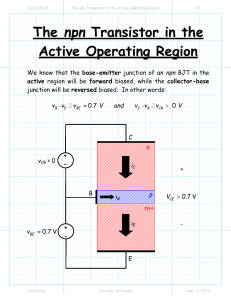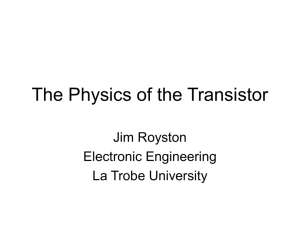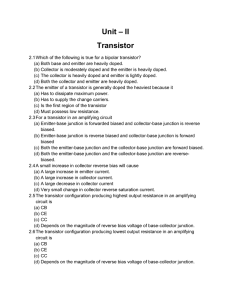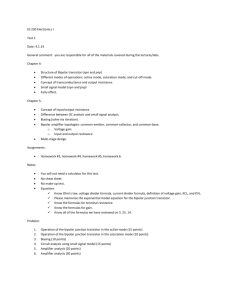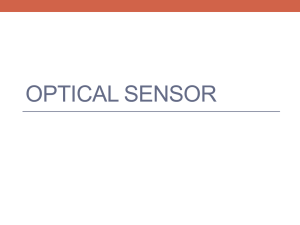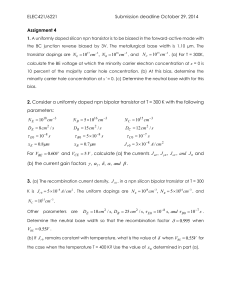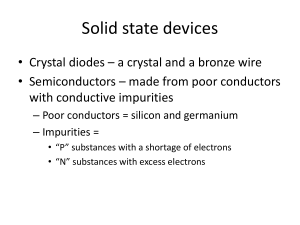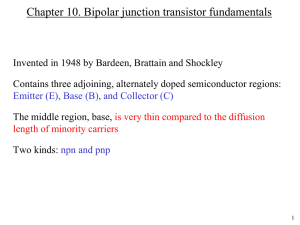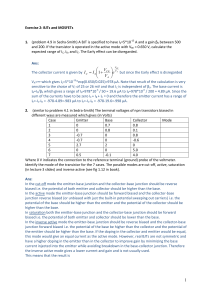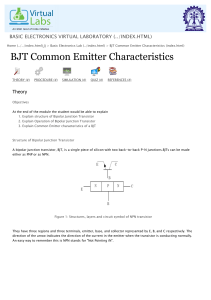npn The Transistor in the Active Operating Region
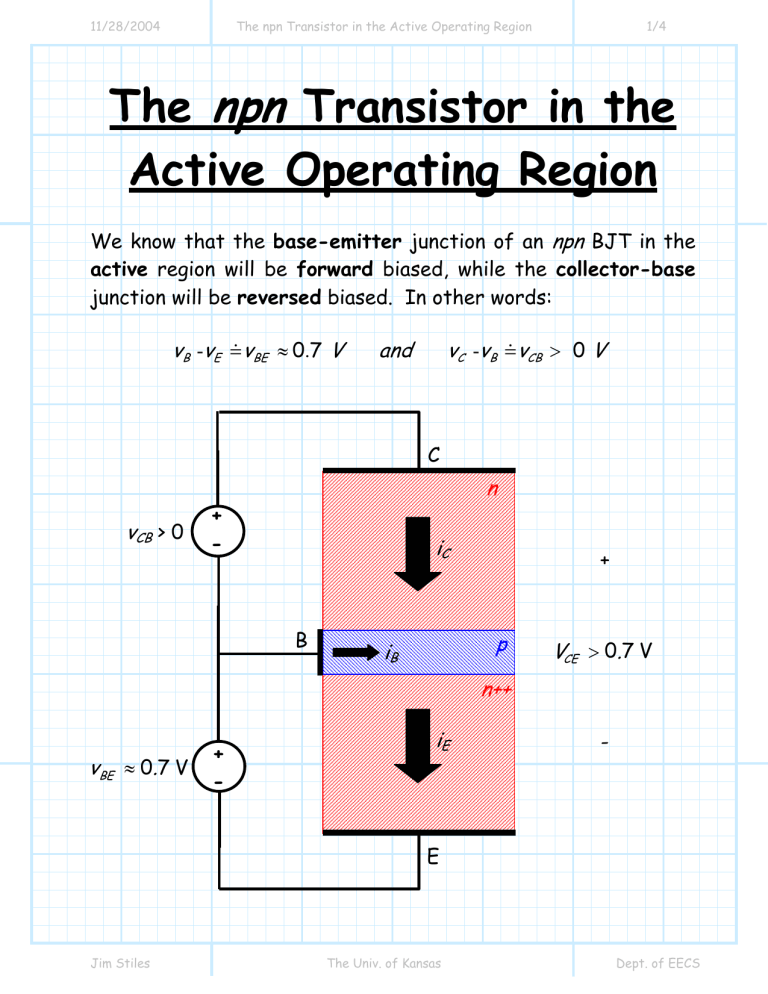
11/28/2004 The npn Transistor in the Active Operating Region 1/4
The
npn
Transistor in the
Active Operating Region
v
We know that the base-emitter junction of an npn BJT in the active region will be forward biased, while the collector-base junction will be reversed biased. In other words: v v
E v
BE
≈
.
V and v v v
CB
> 0 V
BE v
≈
CB
> 0
+
-
+
-
B i
B
C i i
E
C
E n p n++
V
CE
>
-
+
Jim Stiles The Univ. of Kansas Dept. of EECS
11/28/2004 The npn Transistor in the Active Operating Region 2/4 collector-base junction, meaning i
C i
B
Q: OK, if the collector-base junction is reverse biased, then no current will flow through the
=i
E
, right ??
must be zero and
A: NO !
A BJT is more complex in its operation than that. Recall the base is v ery thin . This causes something unusual to happen!
* Recall that if the collector-base junction is reversed biased, then the barrier voltage is large and the diffusion current will drop to zero .
* However, recall also that the drift current is unaffected by the barrier voltage, so drift current does flow across the collector base junction !
Q: Pft! This diffusion current is really small, right?
Like 10 -12 A!?
A: NO!
Again, this is true for a junction diode, but not for a npn transistor.
Jim Stiles The Univ. of Kansas Dept. of EECS
11/28/2004 The npn Transistor in the Active Operating Region 3/4
* Recall that the base-emitter junction is forward biased, and therefore the diffusion current across this junction is large .
* The emitter region of an npn transistor is heavily doped
(n++), so that the diffusion current primarily consists of free electrons moving from the emitter into the base.
* Normally, these free electrons would move to the base electrode , and some still do. But most get swept across the collector base junction by the electric field in the depletion region. v
BE v
CB
> 0
≈ .
+
+
B
C
Free
Electrons
E n p n++
= Electric
Field
Jim Stiles The Univ. of Kansas Dept. of EECS
11/28/2004 The npn Transistor in the Active Operating Region 4/4
In other words, the large number free electrons in the emitter diffuse across the base-emitter junction into the base, then drift across the collector-base junction into the collector.
We say that emitter emits free electrons, and the collector collects them.
If the base is thin , then for every free electron that diffuses across the base-emitter junction, we find that 100 or more are collected (i.e, drift across the CBJ) by the collector!
Jim Stiles The Univ. of Kansas Dept. of EECS
